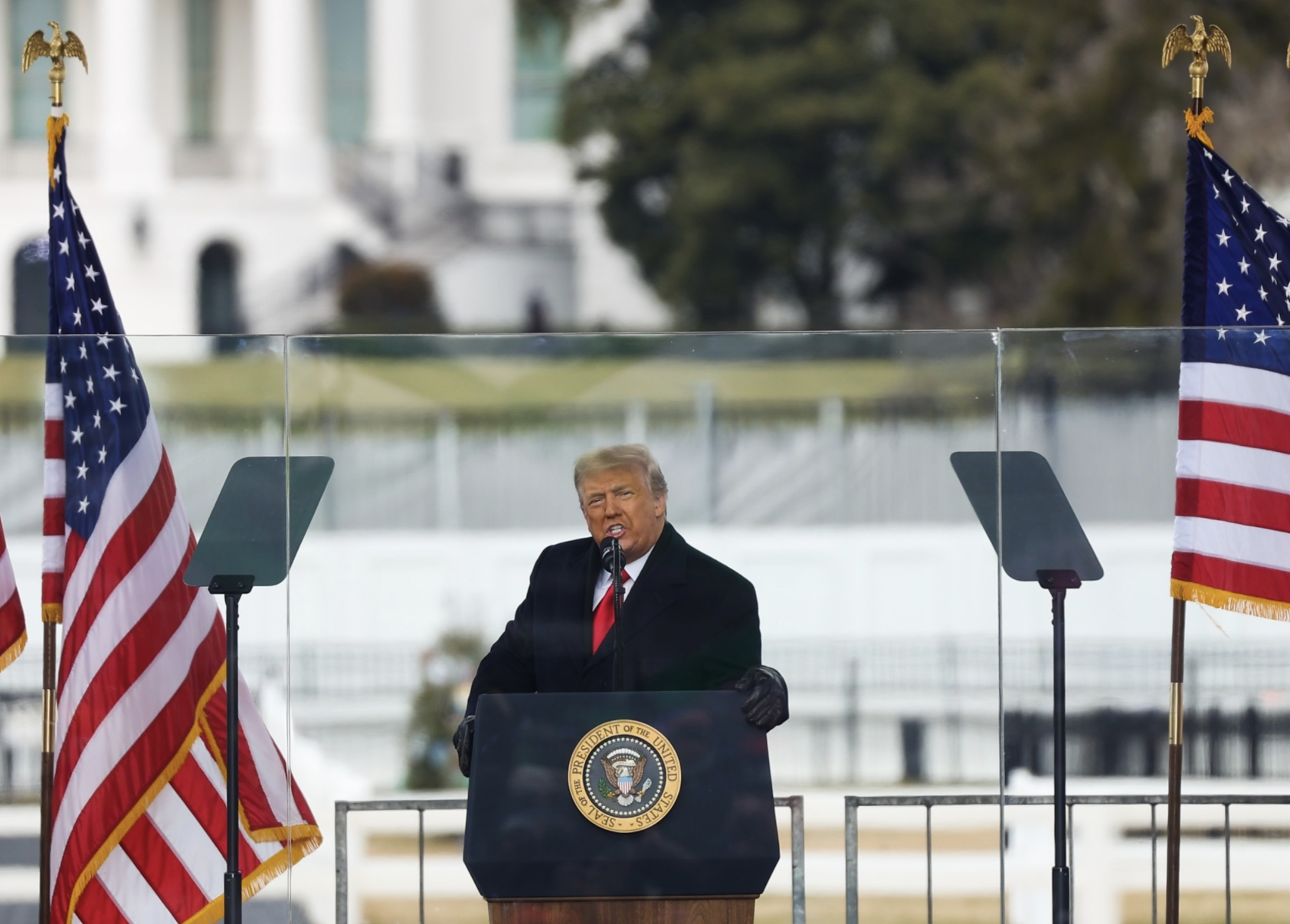By: The Editorial Board – wsj.com – June 30, 2024
A 6-3 majority rules that Presidents have ‘presumptive immunity’ from criminal prosecution for their official acts.
Partisans on the left and right are reacting to Monday’s Supreme Court decision on presidential immunity based on how it affects the fate of Donald Trump. That’s a blinkered view that ignores the long-run implications for the American republic. The 6-3 Court majority rightly focuses on the institution of the Presidency, and the ability of all Presidents—not merely the last one—to act in the national interest free from prosecution for official acts.
The opinion by Chief Justice John Roberts in Trump v. U.S. is a landmark on executive power. It was also predictable based on the Court’s 1982 opinion in Nixon v. Fitzgerald, which said a President has absolute immunity from civil suits for acts within the “outer perimeter” of his duties. The Court ruled on Monday that the threat of criminal prosecution for official acts would be even more debilitating to executive power.
“A President inclined to take one course of action based on the public interest may instead opt for another, apprehensive that criminal penalties may befall him upon his departure from office,” for the six conservative Justices. “And if a former President’s official acts are routinely subjected to scrutiny in criminal prosecutions, ‘the independence of the Executive Branch’ may be significantly undermined.”
The Chief goes on to provide a nuanced ruling that is far from a total victory for Mr. Trump. The Court properly reads the Constitution to offer absolute immunity for actions within the core plenary powers of the executive. This means that a President can’t be prosecuted for actions related to national security, intelligence, or foreign policy.
He can’t be prosecuted, for example, for deaths that occur from ordering a drone strike. And he can’t be prosecuted for his communications with the Attorney General on his investigative decisions. This disqualifies part of special counsel Jack Smith’s narrative against Mr. Trump in the Jan. 6 indictment.
But the Court rejected Mr. Trump’s claim that all presidential acts have absolute immunity. The Chief writes that a President has only “presumptive immunity” from prosecution for official acts outside of his core constitutional powers, and that unofficial acts have no immunity. Mr. Trump couldn’t shoot someone on Fifth Avenue, as he once joked, and be immune.
The most important question is what defines an official act that warrants presumptive immunity. The Chief offers guidance to lower courts and Congress that will shield most official presidential acts. One principle is that a prosecutor and Congress cannot investigate a President’s motive in making a decision. This makes sense because such an investigation would be an enormous and disruptive intrusion into presidential decision-making.
Another principle is that the burden is on the prosecutor to show that an official act doesn’t deserve immunity. “At a minimum, the President must therefore be immune from prosecution for an official act unless the Government can show that applying a criminal prohibition to that act would pose no ‘dangers of intrusion on the authority and functions of the Executive Branch,’” the Chief writes.
The Court doesn’t rule on the other evidence in Mr. Smith’s indictment. Instead it remands the case back to the trial judge to decide if the acts charged are official and deserve immunity. But the Chief does suggest that Mr. Trump’s pressure on Vice President Mike Pence to refuse to certify the Electoral College votes is probably an official act.
“Whenever the President and Vice President discuss their official responsibilities, they engage in official conduct,” writes the Chief. “Presiding over the January 6 certification proceeding at which Members of Congress count the electoral votes is a constitutional and statutory duty of the Vice President.”
But the Court doesn’t offer guidance on immunity for Mr. Trump’s lobbying of state officials to file pro-Trump slates of electors. Instead it remands the question, and other details in Mr. Smith’s indictment, to the trial judge for fact-finding and application of the new immunity principles.
***
The main dissent, by Justice Sonia Sotomayor for the three liberals, focuses on the indictment against Mr. Trump and the particular peril they say he poses to democracy. She offers a parade of potential horribles that Presidents might commit in the future.
“Even if these nightmare scenarios never play out, and I pray they never do, the damage has been done,” she writes. “The relationship between the President and the people he serves has shifted irrevocably. In every use of official power, the President is now a king above the law.”
But is he really? Congress and the judiciary still exist as checks, as the Supreme Court has shown this term on numerous occasions. The impeachment power exists, and elections are the ultimate check on abusive Presidents.
The Chief calls out the dissents for “fear mongering on the basis of extreme hypotheticals.” And he says they “overlook the more likely prospect of an Executive Branch that cannibalizes itself, with each successive President free to prosecute his predecessors, yet unable to boldly and fearlessly carry out his duties for fear that he may be next.”
Democrats on Monday denounced the Court for favoring Mr. Trump and complicating Mr. Smith’s prosecution. But the Court is doing its job of protecting the constitutional order. If they’d take a breath, Democrats would notice that the Justices made it more difficult for Mr. Trump to prosecute Mr. Biden. The immunity ruling underscores the mistake Democrats have made in using lawfare to disqualify a presidential candidate. They should have put more trust in the voters.
To see this article in its entirety and to subscribe to others like it, please choose to read more.
Source: The Supreme Court Protects the Presidency in Trump v. U.S. – WSJ
 Listen Online
Listen Online Watch Online
Watch Online Find a Station in Your Area
Find a Station in Your Area










 Listen Now
Listen Now Watch Online
Watch Online
